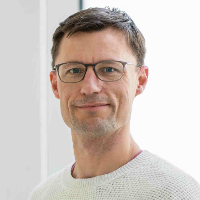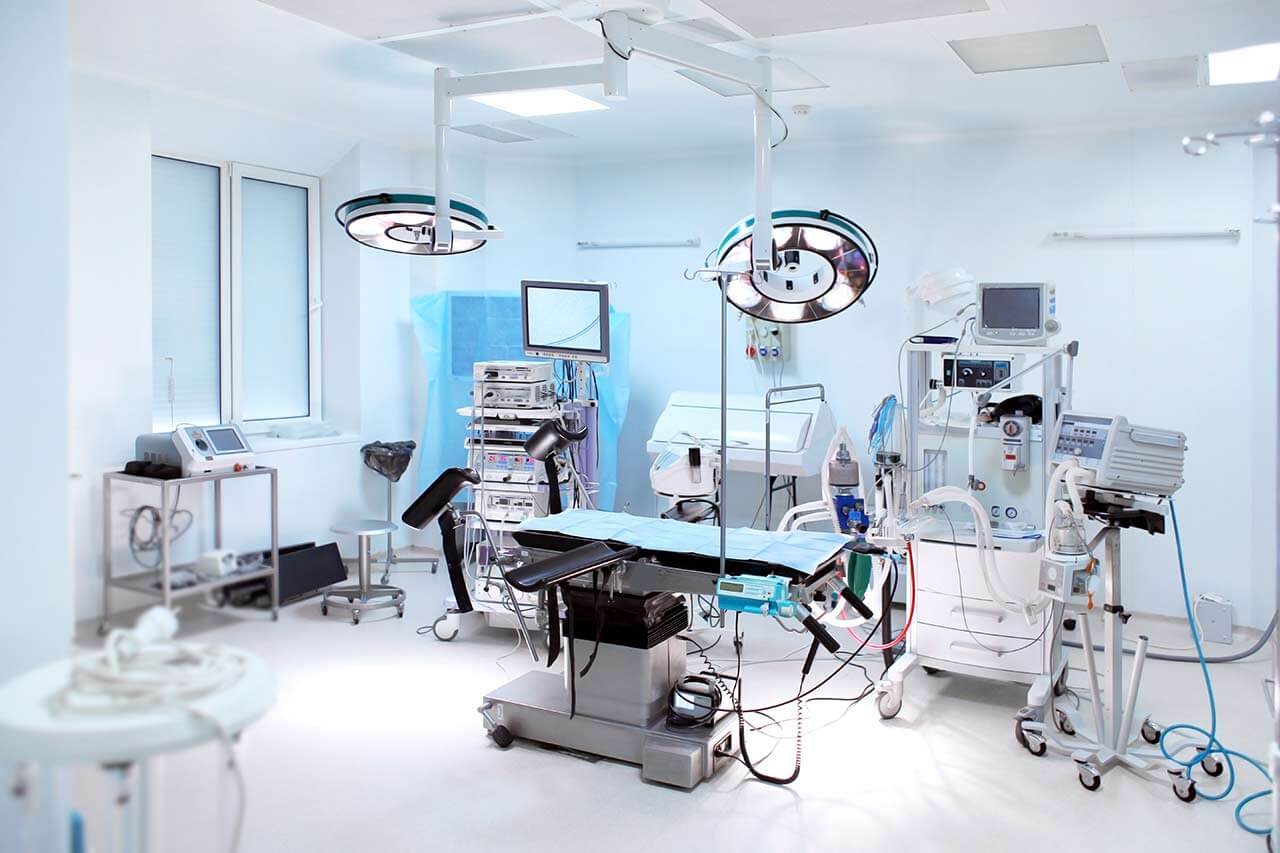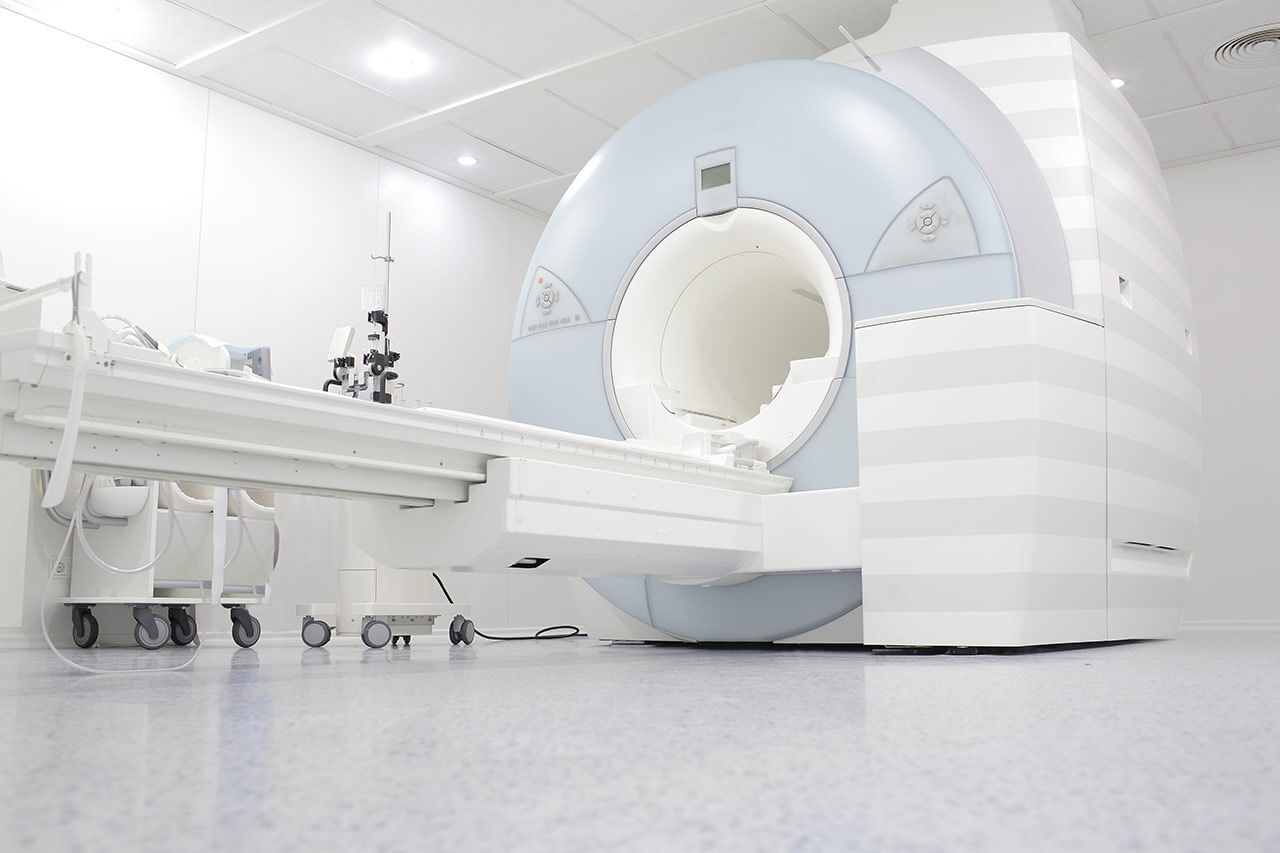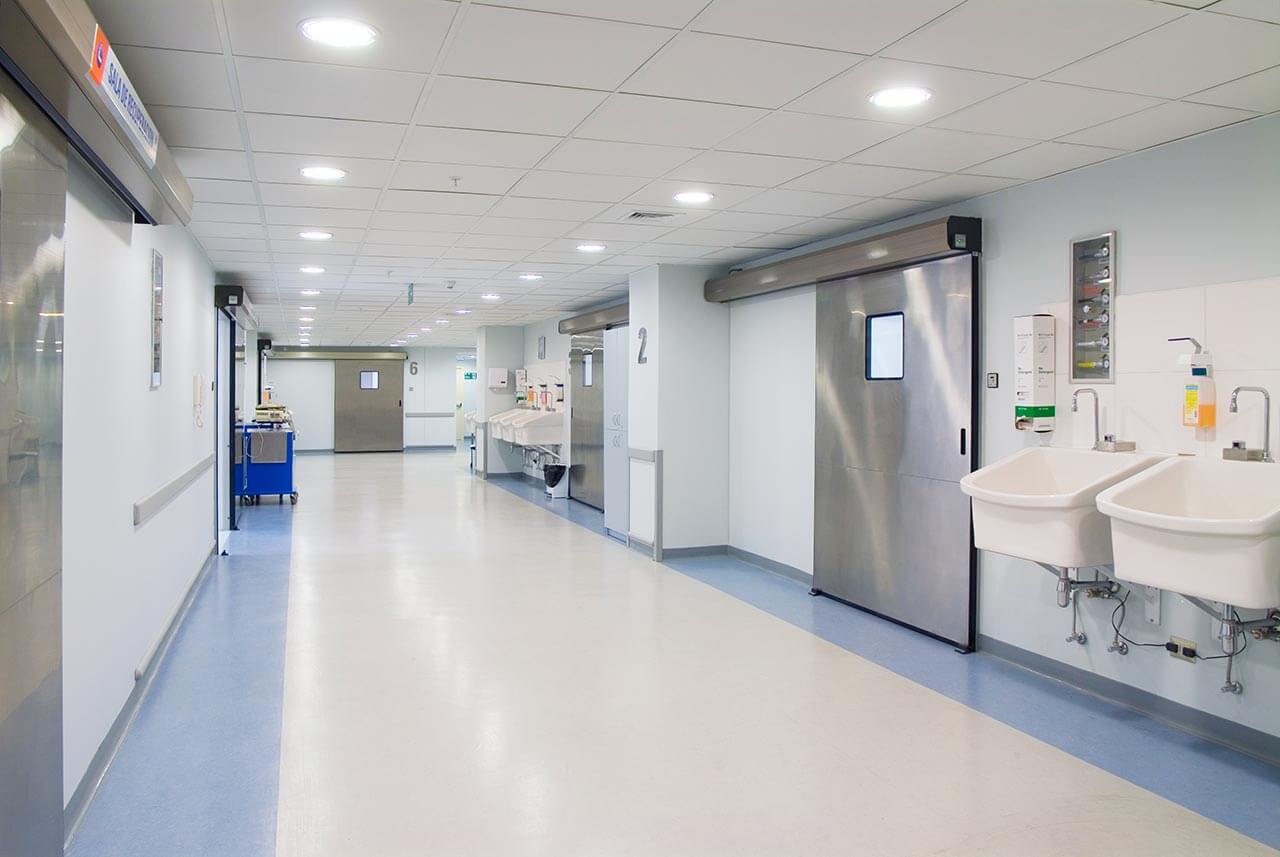
The program includes:
- Interview with doctor, medical history taking
- general clinical examination
- complete blood count
- extended blood test:
- thyroid function test (TSH, fT3, fT4)
- liver and pancreas function tests (ALT, AST, GGT,
AP, Bilirubin, CHE, LDH, Lipase) - kidney function test (creatinine, urea)
- mineral metabolism analysis (Na, K, Ca, Mg)
- lipid metabolism (HDL/LDL, cholesterol,
triglycerides Lip(a), homocysteine) - blood coagulation analysis (aPTT, PT, INR)
- metabolic status (uric acid, glucose)
- iron content (ferritin, iron)
- inflammatory markers (CRP, ESR)
- tumor markers (CEA, CA19-9, AFP, PSA)
- immunological status (protein electrophoresis)
- urinalysis (pH level, leukocytes, protein, ketones, erythrocytes)
- fecal occult blood test
- abdominal and pelvic ultrasound
- thyroid ultrasound
- whole-body MRI (or alternatively, a two-region MRI)
- gastroscopy (with the H.pylori test and biopsy)
- colonoscopy (with biopsy and polypectomy if clinically indicated)
- urological Check-Up:
- prostate ultrasound
- kidney and bladder ultrasound
- prostate and testicular transrectal examination
- interview and recommendations after examination
- written statement
Required documents
- Medical records (if availale)
Service
You may also book:
 BookingHealth Price from:
BookingHealth Price from:
About the department
The Department of Gastroenterology, Hepatology and Pulmonology at the University Hospital Halle (Saale) specializes in the diagnosis and treatment of the entire spectrum of diseases of the gastrointestinal tract, hepatobiliary system, and respiratory tract. The gastroenterologists and hepatologists of the department focus on patients with oncological diseases of the digestive system, pancreas and gallbladder, neuroendocrine tumors, benign liver and pancreatic diseases, and chronic inflammatory bowel disease. In the field of pulmonology, the medical facility specializes in the treatment of bronchial asthma, chronic obstructive pulmonary disease (COPD), interstitial lung disease, lung, bronchial, tracheal, and laryngeal cancers, and cystic fibrosis. The department has state-of-the-art endoscopic equipment that allows physicians to perform a full range of diagnostic and therapeutic procedures. Patients also have access to comfortable ultrasound rooms and a laboratory for functional diagnostics of the gastrointestinal tract. The department's team of physicians works closely with abdominal and thoracic surgeons to ensure that each patient receives effective treatment that meets their individual needs and desires. The Head Physician of the department is Prof. Dr. med. Jonas Rosendahl.
The main clinical focus of the gastroenterologists and hepatologists of the department is the diagnosis and treatment of oncological diseases of the gastrointestinal tract: stomach, esophagus, pancreas, small and large intestine, bile ducts, and liver. In the diagnosis of suspected cancers, the department's specialists perform ultrasound and advanced endoscopic examinations, including contrast-enhanced endosonography and elastography. When clinically indicated, the department also offers imaging tests (CT and MRI scans) and/or radioisotope examinations (scintigraphy and PET) in cooperation with radiologists and nuclear medicine specialists. With all of the diagnostic data in hand, the department's physicians work with surgeons, oncologists, and radiation therapists to plan treatment tactics. Gastroenterologists perform endoscopic procedures to remove colon polyps and adenomas (precancerous conditions) and early-stage stomach and esophageal tumors. If necessary, oncologists may be involved in the therapeutic process. They provide systemic treatment with chemotherapy, targeted therapy, antibody therapy, and immunotherapy. In the advanced stages of oncology, patients are indicated for surgery, which is performed by abdominal surgeons.
The medical facility regularly admits patients with chronic inflammatory bowel disease such as Crohn's disease, ulcerative colitis, and microscopic colitis. At the diagnostic stage, esophagogastroduodenoscopy, ileocolonoscopy, small bowel capsule endoscopy, double balloon enteroscopy, endosonography, and classical ultrasound are performed. The treatment regimen is developed individually for each patient. The first-line treatment is drug therapy, including innovative biologics. In more complex cases, the department's gastroenterologists use endoscopic procedures.
The department provides a wide range of diagnostic and therapeutic services for patients with liver disease, including pre- and post-transplant medical care. Diagnostic capabilities in the field of hepatology include classical sonography, contrast-enhanced ultrasound scans, percutaneous liver biopsy, transjugular liver biopsy, and hepatic venous pressure gradient measurement. Patients are also offered imaging and radioisotope diagnostics. If liver malignancies are detected, radiofrequency thermal ablation and microwave ablation, as well as transarterial chemoembolization and selective internal radiation therapy (in cooperation with radiologists and radiation therapists) are successfully used. Transjugular intrahepatic portosystemic shunting (TIPS) is performed for bleeding from esophageal varices in patients with cirrhosis.
An integral part of the work of the department's medical team is the diagnosis and treatment of pulmonary diseases. The specialists of the department are particularly interested in the medical care of patients with lung cancer, bronchial asthma, chronic obstructive pulmonary disease, interstitial lung disease, and cystic fibrosis. In cases of suspected lung, bronchial, tracheal, and laryngeal cancers, a comprehensive diagnosis is performed using instrumental, imaging, and laboratory diagnostic methods. If a cancer diagnosis is made based on the results of the preliminary examination, the patient's clinical case is discussed in a weekly interdisciplinary tumor board with the participation of pulmonologists, thoracic surgeons, oncologists, radiation therapists, radiologists, and nuclear medicine specialists. For the removal of early-stage lung and bronchial tumors, the department's pulmonologists offer laser therapy, photodynamic therapy, cryotherapy and argon plasma coagulation.
The department's pulmonologists also specialize in stenting to relieve airway stenosis, argon plasma coagulation, and bronchial artery embolization to stop bleeding in the respiratory tract. In addition, the department has successful experience in bronchoscopic lung volume reduction through the implantation of special valves and coils, and steam ablation.
The department diagnoses and treats the following diseases:
- Gastroenterology
- Malignant diseases of the gastrointestinal tract
- Stomach cancer
- Colon cancer
- Esophageal cancer
- Neuroendocrine tumors
- Benign diseases of the gastrointestinal tract
- Peptic ulcer disease
- Gastric and colon polyps
- Gastritis
- Colitis
- Chronic inflammatory bowel disease: Crohn's disease and ulcerative colitis
- Malignant diseases of the gastrointestinal tract
- Hepatology
- Malignant diseases of the hepatobiliary system
- Liver cancer
- Gallbladder and bile duct cancer
- Pancreatic cancer
- Benign diseases of the hepatobiliary system
- Cholecystitis
- Pancreatitis
- Hepatitis
- Cirrhosis
- Liver cysts
- Malignant diseases of the hepatobiliary system
- Pulmonology
- Malignant diseases of the respiratory system
- Lung cancer
- Bronchial cancer
- Tracheal cancer
- Laryngeal cancer
- Benign diseases of the respiratory system
- Bronchial asthma
- Chronic obstructive pulmonary disease
- Interstitial lung disease
- Cystic fibrosis
- Malignant diseases of the respiratory system
- Diagnostics and treatment of other diseases of the gastrointestinal tract, hepatobiliary system, and respiratory system
The range of diagnostic and therapeutic services provided by the department includes the following:
- Gastroenterology and hepatology
- Diagnostic services
- Endoscopic diagnostic procedures
- Gastroscopy
- Colonoscopy
- Chromoendoscopy
- Endosonography
- Endoscopic retrograde cholangiopancreatography
- Capsule endoscopy
- Cholangioscopy
- Ultrasound examinations
- Classical ultrasound examinations
- Color duplex sonography
- Contrast-enhanced sonography
- Functional diagnostics of the gastrointestinal tract
- Breath tests
- Breath tests to detect lactose, fructose, and sorbitol intolerance
- Breath tests to detect disaccharidase deficiency
- C-urea breath test to detect Helicobacter pylori
- Lactulose breath test to detect Orocecal transit time of various carbohydrates
- Hinton test
- Hepatic venous pressure gradient measurement
- Transjugular liver biopsy
- Esophageal and anorectal manometry
- Twenty-four-hour pH-metry
- Breath tests
- Endoscopic diagnostic procedures
- Therapeutic services
- Endoscopic therapeutic procedures
- Endoscopic mucosal resection (mucosectomy) and endoscopic submucosal dissection for early-stage gastrointestinal cancers
- Endoscopic retrograde cholangiopancreatography for pancreatic and bile duct diseases
- Percutaneous transhepatic biliary drainage
- Transjugular intrahepatic portosystemic shunting
- Ultrasound-guided therapeutic procedures
- Ultrasound-guided liver and pancreatic puncture
- Percutaneous ultrasound-guided drainage of pancreatic pseudocysts and infected pancreatic necrosis
- Ultrasound-guided radiofrequency thermal ablation for primary and secondary liver tumors
- Ultrasound-guided percutaneous ethanol injection for hepatocellular carcinoma
- Endoscopic therapeutic procedures
- Diagnostic services
- Pulmonology
- Diagnostic services
- Endoscopic diagnostic procedures
- Autofluorescence bronchoscopy
- Endobronchial ultrasound
- Endoscopic diagnostic procedures
- Therapeutic services
- Endoscopic therapeutic procedures
- Flexible and rigid bronchoscopy for stent placement, argon plasma coagulation, cryotherapy, laser therapy, and endobronchial brachytherapy
- Bronchoscopic lung volume reduction
- Bronchial artery embolization (in collaboration with radiologists)
- Endoscopic therapeutic procedures
- Diagnostic services
- Other diagnostic and therapeutic options
Curriculum vitae
Since January 1, 2024, Prof. Dr. med. Jonas Rosendahl has been the Head Physician of the Department of Gastroenterology, Hepatology and Pulmonology at the University Hospital Halle (Saale) and also holds the position of W3 Professor for Gastroenterology at the Faculty of Medicine of the Martin Luther University Halle-Wittenberg. Since 2022, the specialist has been Acting Head Physician of the Department of Gastroenterology, Hepatology and Pulmonology at the University Hospital Halle (Saale).
Dr. Rosendahl studied medicine at the University of Muenster, the Ludwig Maximilian University of Munich, the Free University of Berlin, and the Humboldt University of Berlin. He worked at the University Hospital Leipzig from 2004 to 2015. Prof. Jonas Rosendahl received his doctorate from the Humboldt University of Berlin in 2007. During his work at the University Hospital Leipzig, the doctor focused on emergency medical care and completed his board certification in internal medicine. Prof. Rosendahl completed his habilitation in internal medicine in 2012 and took up the post of Senior Physician in the Department of Gastroenterology at the University Hospital Leipzig in 2013.
Dr. Jonas Rosendahl has received numerous awards for his successful clinical practice and research, including the Rising Star Award from the United European Gastroenterology (UEG) and the Géza Hetényi-Medaille from the Hungarian Society of Gastroenterology, of which he is an honorary member.
Photo of the doctor: (c) Universitätsklinikum Halle (Saale)
About hospital
According to the prestigious Focus magazine, the University Hospital Halle (Saale) is one of the best medical institutions in Germany!
The history of the hospital goes back more than 300 years, and during this time it has managed to gain an excellent reputation not only in Germany, but also throughout the world. The hospital positions itself as a specialized healthcare facility for the treatment of severe and rare diseases and injuries. The hospital provides medical care to patients of all ages in compliance with the latest scientific achievements. The hospital is distinguished by successful research activities, especially in the field of cardiovascular diseases and oncopathologies – the specialists in these areas have made significant contributions to the development of the very latest diagnostic methods and therapeutic approaches.
The University Hospital Halle (Saale) has 30 specialized departments representing almost all areas of modern medicine, as well as 17 narrowly focused institutes. About 35,000 patients receive qualified medical care of European standards in the hospital every year, and more than 212,000 patients are served on an outpatient basis. This number of patients is evidence of the high efficiency of medical services and the excellent image of the hospital in the international medical arena; patients from all over the world regularly seek medical attention here.
Some of the hospital's structural units deserve special attention. For example, the Central Emergency Department (the largest in Saxony-Anhalt), modern dental clinics, the Perinatal Center, and the Transplant Center, which has a history of more than 40 years. The Transplant Center performs more than 40 kidney transplants annually, most of them from living donors.
Thanks to the use of the latest medical technologies and the availability of state-of-the-art equipment, many previously high-risk surgeries and procedures can now be performed in the hospital using sparing techniques. In this context, hybrid cardiac surgery and robotic surgery using the innovative da Vinci Si® system in urology are worthy of mention.
An integral part of the successful clinical practice of the University Hospital Halle (Saale) is the availability of experienced and competent medical staff. The total number of employees at the hospital is more than 4,450. Many physicians are known far beyond the borders of Germany: they regularly conduct important research that enables the development of modern medicine. In addition, the hospital specializes in training medical students, so qualified doctors and professors are willing to pass on their experience to the younger generation.
The hospital has many quality certificates such as DIN EN ISO 9001:2015 certificate, German Cancer Society (DKG) certificate, JACIE certificate, EndoCert certificate, ClarCert certificate, German Spine Society (DWG) certificate, German Trauma Society (DGU) certificate, CERT iQ certificate, LGA InterCetert certificate, and others.
Photo: (с) depositphotos
Accommodation in hospital
Patients rooms
The patients of the University Hospital Halle (Saale) stay in comfortable single, double, and triple rooms with a modern design. All patient rooms have an ensuite bathroom with a toilet and a shower. The standard patient room includes a comfortable automatically adjustable bed, a bedside table, a wardrobe, a table and chairs for receiving visitors, a TV, a radio, and a telephone. The patient rooms have access to Wi-Fi. For safety reasons, the use of laptops and cell phones is prohibited in some areas, including the intensive care units. The hospital also offers enhanced-comfort patient rooms.
Meals and Menus
The hospital offers delicious and well-balanced meals three times a day: breakfast, lunch, and dinner. Patients and their companions can choose from three daily menus, which always include dietary dishes. If necessary, an individual menu can be prepared for the patient. Children are offered a special menu with healthy and tasty dishes, rich in nutrients necessary for a growing body.
Further details
Standard rooms include:
![]() Toilet
Toilet
![]() Shower
Shower
![]() Wi-Fi
Wi-Fi
![]() TV
TV
Religion
Religious services are available upon request.
Accompanying person
Your accompanying person may stay with you in your patient room or at the hotel of your choice during the inpatient program.
Hotel
Your accompanying person may stay with you in your patient room or at the hotel of your choice during the inpatient program.




